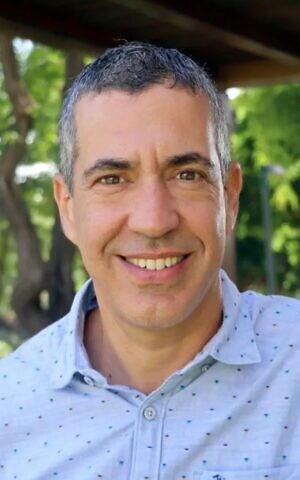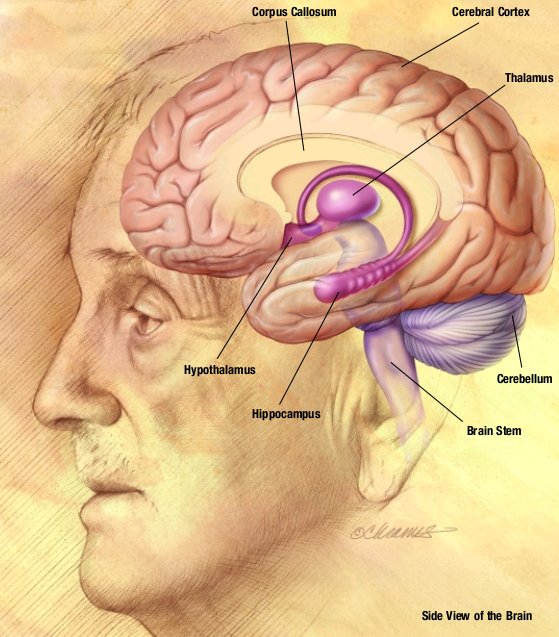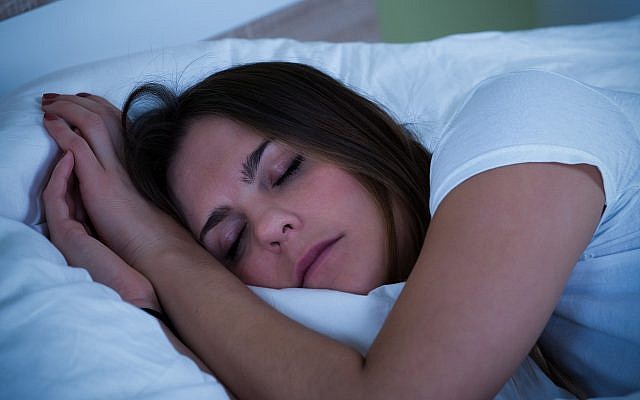Stimulating the brain during sleep, Tel Aviv team says it’s found key to better memory
Volunteers in joint study with UCLA did 10% better on recall tests, demonstrating how communication between hippocampus and cerebral cortex helps consolidate memories while asleep
Renee Ghert-Zand is a reporter and feature writer for The Times of Israel.
Get a good night’s sleep before a test. The advice seems like obvious common sense, but it is only now that scientists say they are beginning to understand the mechanism in the brain behind the folk wisdom.
Scientists had previously hypothesized based on animal models that communication between two regions of the brain solidifies recall for memories retained from night to morning. Now, researchers from Tel Aviv University and UCLA have scientifically demonstrated this for the first time, potentially opening the door to new treatments for memory loss.
In a study published this month in the leading peer-reviewed journal Nature Neuroscience, the scientists tested for improved memory consolidation by using electrical stimuli timed to enhance the synchronization of brain waves during sleep between the hippocampus, a deep-brain region involved in acquiring new memories, and the frontal cortex, where memories are stored for hours.
A cohort of 18 epilepsy patients at UCLA Medical Center agreed to have electrodes implanted in their brains for clinical monitoring during the study.
“Through this unique opportunity, we were able to understand what happens in the brain during sleep that helps consolidate memories for the long term,” said Prof. Yuval Nir from the Sagol School of Neuroscience at Tel Aviv University, whose lab collaborated with Prof. Itzhak Fried from the Department of Neurosurgery at UCLA for the study.
“In brain research, long-term means minutes or hours — and in this case longer, around 12 hours, or a night’s sleep,” Nir clarified.

To synchronize the sleep waves, the scientists devised a closed-loop system whereby they monitored signals from the hippocampus as the patients slept and stimulated the frontal cortex upon their release. The precisely-timed stimulation, they hypothesized, would increase the communication between the two parts of the brain and help consolidate memory.
Indeed, study participants performed 10 percent better on memory tests upon waking when compared with their performance following a night of sleep without brain wave stimulation, the researchers found.
“To our surprise, we also discovered that the intervention did not significantly increase the number of right answers given by participants, but rather reduced the number of wrong answers. This suggests that sleep sharpens the accuracy of our memory, or in other words, it removes various distractions from the relevant memory trace,” Nir noted.
Nir described the intervention as limited. Participants would only get stimuli for around 90 minutes a night, but only in short bursts once every 4 seconds, with five-minute breaks every five minutes.
“This is part of what is so exciting. It did not involve deep brain stimulation, as in treatment for Parkinson’s Disease. Yet this very low intervention was enough to improve memory by 10%,” he said.
Nir explained that the study went beyond confirming that sleep helps memory consolidation to look at the deeper processes behind the phenomenon.
“Most of the study was about how this intervention affected sleep from the very gross — what we call architecture of sleep stages — to the very fine, frequency, timing, and occurrence of different sleep events,” Nir said.
“We tracked the sleep stages in much more detail. We looked at different sleep oscillations and different signatures of electrical activity during sleep — especially something called sleep spindles. We know that these are a telltale sign of learning and plasticity, of the brain changing its structure to support memory. We saw that our intervention increased these events of sleep spindles during the night,” he said.

While few may be willing to implant electrodes for 10% better memory, Nir responded that non-invasive methods to identify activity in the hippocampus and stimulate the frontal cortex could be developed in the future to achieve a similar result.
“And this month, Elon Musk’s Neuralink was granted FDA approval for implantation and human testing. So we’re gonna have more and more people implanted with electrodes and brain-machine interfaces. What seemed like science fiction a short while ago is becoming real here and now in front of our eyes,” Nir said.
“So I don’t think it’s completely inconceivable that maybe in the future, some individuals with early Alzheimer’s or other forms of dementia may have a brain implant to act as a memory aid. These types of concepts are not here yet, but they are becoming imaginable,” he said.











